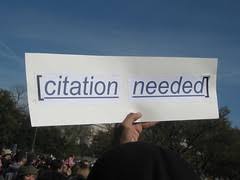COPYRIGHT IN GEORGIA’S LEGAL CODE: THE WAY FORWARD? In 2018 The 11th Circuit had held that the statutory legal code of Georgia is not protected by copyright law. An important decision propagating the norm of open access to legal documents and rules was given by this court. The prime reason for this action of review is to reaffirm this ruling and set it as a binding precedent even beyond the precedential scope of 11th Circuit. As open records activist Carl Malamud said "Access to the law is a fundamental aspect of our system of democracy, an essential element of due process, equal protection, and access to justice". The Eleventh Circuit's ruling is persuasive authority, that could be used elsewhere, and this petition has been filed to convert it to a completely binding precedent by the hands of the US Supreme Court. The core reason for this action of review is to bring in efficiency in copyright implementation by ruling the 11th Circuit’s decision as the law of the land. The critical need for public’s access to law needs to be ultimately recognized. A meaningful access for the purpose of public accountability, learning, teaching etc, is imperative and copyrighting the same would involve inclusion of subscription and other commercial mechanisms to access the content of law. “An intrinsically public domain material, which belongs to the public” cannot be allowed to be curbed from open access. Analyzing another jurisdiction, it is worthy to be noted that the Indian Supreme Court has also gone on to hold that court Judgments and orders are public documents and the text thereof cannot be monopolized by the instrument of Copyright.
BATISTE v. MACKLEMORE COPYRIGHT INFRINGEMENT SUIT DISMISSED. in another music industry plagiarism case, Paul Batiste of the Batiste Brothers Band had, in 2017, filed an infringement suit against Macklemore and Lewis, arguing that a number of Macklemore’s songs lincluding “Can’t Hold Us”, “Same Love”, and “Thrift Shop” had (and in an unauthorized manner) copied and sampled certain original elements of eleven of his songs. Now in Louisiana a Federal Judge has reached a decision on the matter which reinforces the test for determining copyright infringement in musical works - whilst applying the same to the facts of this case and ruling against infringement (Judge Martin L.C. Feldman in a summary decision). Judge Feldman reiterated that there are three elements that need to be fulfilled to determine copyright infringement in a musical work. These are: (i) Ownership of a valid copyright, (ii) factual copying and (iii) substantial similarity. Factual copying needs to be established through circumstantial evidence, wherein the factor of “access” (reasonable opportunity to view) to original works can be claimed while proving such infringement. In the case at hand, neither factual striking similarity was established nor was access proven satisfactorily for an action of infringement to succeed. No evidence which could show that the defendants had even heard of Batiste was adduced before the court. Mere wide dissemination does not fulfill the threshold required to prove conclusive possibility of access.
NORA ROBERTS ALLEGES MULTI-PLAGARISM AGAINST A BRAZILIAN INDEPENDENT AUTHOR A copyright infringement case has been filed in the Rio Court by Nora Roberts on the issue of plagiarism. She has reportedly claimed 3,000 times the value of the highest sale of the books alleged to infringe written by Cristiane Serruya. The court filing alleges that the infringing books to convey practically identical 'emotions' to Nora’s books and that Serruya has committed “multi-plagiarism” on a “rare and scandalous” level. Nora has released a statement saying, “If you take my work, you will pay for it!” Further, Roberts has acknowledged the issue of funds to pursue such infringement litigation by writers who have their works plagiarized and profited upon. The position of the defendant has constantly been that she is innocent of the allegations say8ng that she uses ghostwriters for her books and further a plagiarism checker tool - to check against such unauthorized copying. The decision is pending.
FORTNITE SUED AGAIN!! And thus time it's for some signature “Phone It In” moves: saxophonist Leo Pellegrino has alleged Fortnite to have misappropriated his likeness without permission involving a saxophone dance in the game. He has alleged that Epic (Fortnite developers) has, without permission, used certain moves which have become inseperable from his persona. The claim focuses on the likeness of the character performing such moves in the game with Leo including the use of “outward pointing feet” used specifically by Pellegrino while playing the Saxophone and the striking similarity with the pose and the 'passion'. It must be noted that Fortnite has also been sued with respect to certain dance moves which has brought in the contentious issue of whether dance moves can be copyrighted. Another instance wherein Fortnite has been in news is the claim of royalties being brought in by the music industry against this inline gaming platform, wherein a virtual concert of DJ Marshmellow was shown. Post the EU Copyright Directive being signed, tech companies are to seek licenses from music industry before hosting any of their content online. Such digital royalty claims of usage of music in gaming platforms has been made possible post the signing of the new EU Copyright provisions.

LA LIGA SUCCESSFUL IN BLOCKING PIRATE CHANNELS IN DENMARK Spain's premier football league La Liga had brought a claim in Denmark to block certain channels which played and streamed its matches in a pirated format. This landmark decision brings in protection to right holders in a market with suffers from ongoing and widespread piracy issues. Further, acknowledging the risk of getting malware infected due to such illegal streaming, the court, not only concerned its decision with the right holders but also the users of such services. La Liga’s audiovisual director was quoted commenting this to be an important step to fight the peril of broadcast piracy which is rampant around the world, and the commercial gain developed by such illegal advertising on these services, resulting in heavy earnings for those behind developing these unauthorized and illegal methods. He said: “Audio-visual Piracy is illegal and has significant consequences, not only for us, but for the league and the future of the game, so we are very happy that Rettigheds Alliancen has joined us in the fight. We know that Denmark is at the forefront of the development of digital tools to fight online piracy, and this is a big issue for us. We are now looking forward to seeing the effects of the blocking and hope that they can serve as an example for other countries, so that we can stand together in the fight against online piracy.”
INTERNET STREAMING, OUTSIDE THE PURVIEW OF STATUTORY LICENSING UNDER SECTION 31D OF THE COPYRIGHT ACT, IN INDIA. The Bombay High Court has reached an important decision that may well effect the development of the music streaming market in India - not least as Spotify seeks to expand in the Indian market. In the matter of Tips Industries Limited vs Wynk Music Ltd, the single bench of Justice S.J. Kathawalla in the Bombay High Court (judgement dated April 23, 2019) ruled upon many issues with respect to internet streaming on OTT platforms and its implications on the statutory licensing provided under Section 31D of the Indian Copyright Act. Section 31D of the Copyright provides for a statutory licensing scheme, as per which any ‘broadcasting organisation’ desirous of ‘communicating to the public’ any sound recording or its underlying works, may obtain a statutory license to do so, provided they pay the royalty rates to the copyright owners. The core highlight of the judgment includes the point that the services rendered by the Defendants through their download and purchase features amount to commercial rental / sale of the Plaintiff’s (Tips) copyrighted sound recordings. Since the right to commercially rent and sell a sound recording is a separate and distinct right as against the right to communicate the sound recording to the public, the Defendants cannot exercise a Statutory License under Section 31-D in respect of the download and purchase features provided by them. Had the Legislature intended for a statutory license under the said Section 31-D to encompass the sale and/or commercial rental as contemplated under Section 14(1)(e)(ii), The legislature would have employed express language to that effect in Section 31-D of the Act. The absence of such language or even mention of sale and/or commercial rental in Section 31-D of the Act makes the intention of the Legislature crystal clear to exclude the commercial rental/sale of sound recordings from the purview of Section 31-D. It is therefore evident that Section 31-D contemplates communication to the public by way of the broadcast of sound recordings only, and not their commercial rental and/or sale. The grant of Statutory The license under Section 31-D is only restricted to radio and television broadcasting organizations and the Defendants’ on-demand streaming services offered through the internet as an “internet broadcasting organization” do not fall within the purview of Section 31-D of the Act. More here.
This update from the 1709 Blog intern Akshat Agrawal
This update from the 1709 Blog intern Akshat Agrawal







